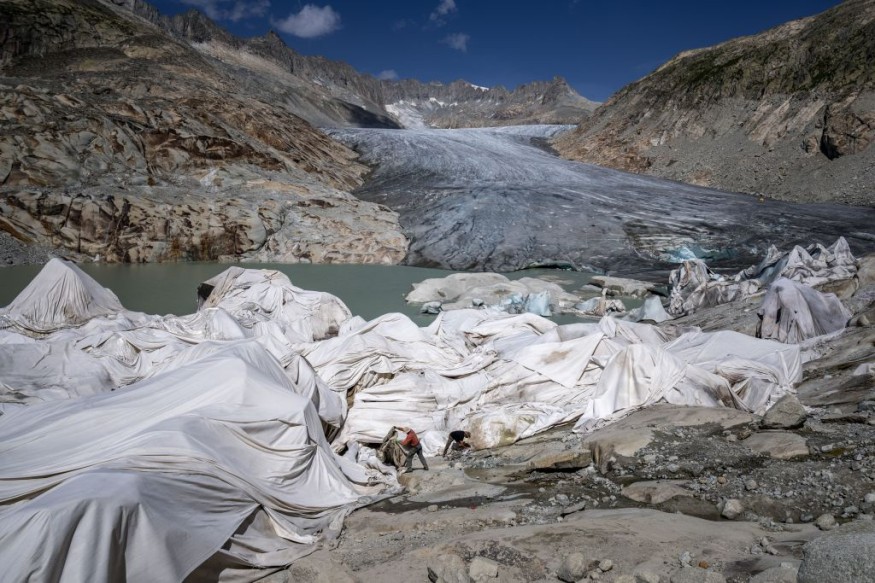A recent report indicated that the Swiss glaciers have lost 10% of their volume in just the past two years.

According to scientists, exceptionally warm summers and winters with very little snow cover are the results of climate breakdown brought on by the burning of fossil fuels, which has accelerated melting.
Similar to what was lost between 1960 and 1990, a similar amount was lost during the hot summers of 2022 and 2023.
According to the Swiss Academy of Sciences' research, this year saw the second-largest annual decline in recorded history, with 4 percent of the Switzerland's total glacier volume disappearing.
The biggest thaw since data began was recorded to occur in 2022, when there was a 6% dip.
Even though glaciers have constantly and quickly been losing mass for many decades, this is a tremendous acceleration," said Matthias Huss, head of the Swiss Glacier Monitoring Network (GLAMOS), adding tht these extremes "would have been impossible without climate change."
Ice loss in Switzerland
Furthermore, there is almost no ice left on certain glaciers, so experts have already ceased monitoring them.
Recently, measurements at the St. Annafirn glacier in the canton of Uri in Central Switzerland were stopped because the glacier has mostly melted.
Huss said that the climate change increases the likelihood of such serious catastrophes, and a terrible combination of meteorological extremes also contributes.
This year saw a record amount of warmth in the Swiss Alps.
The elevation at which precipitation freezes reached a new record overnight high in August, the peak melt month, measuring 5,289 meters (17,350 feet), higher than Mont Blanc.
This broke the previous record set in 2017 by 5,184 meters.
Scientist also discovered bare rock protruding from diminishing ice as well as brand-new lakes emerging near to the glacier tongues for the first time ever.
As ice sheets have receded, bodies that had been lost beneath the ice have been found.
Read Also : Swiss Glaciers Shrunken By 10% in Five Years
Re-shaping of high-alpine
There are grave consequences to the massive glacier melt during the past two years, experts have said.
It "means a significant re-shaping of the high-alpine landscape," according to Huss.
Because of the unstable rock that could result in severe rockslides, it is also causing unsafe situations.
Grim discoveries are being made as a result of the retreating glaciers.
He noted that the emissions must be reduced in order to prevent Switzerland from losing its ice, but even if global warming could be limited to 1.5C over preindustrial levels, just a third of Switzerland's glacier volume is being expected to reappear.
There are also short-term benefits because the glacier runoff has filled hydroelectric reservoirs and lessened the severity of the country's current drought.
However, this is momentary and fleeting. Glaciers are fast losing their crucial ability to provide water when humans need it as a result of their increasing thinning.
"This will aggravate water scarcity during heat waves in the near future," Huss said.
Related Video:
© 2025 NatureWorldNews.com All rights reserved. Do not reproduce without permission.





